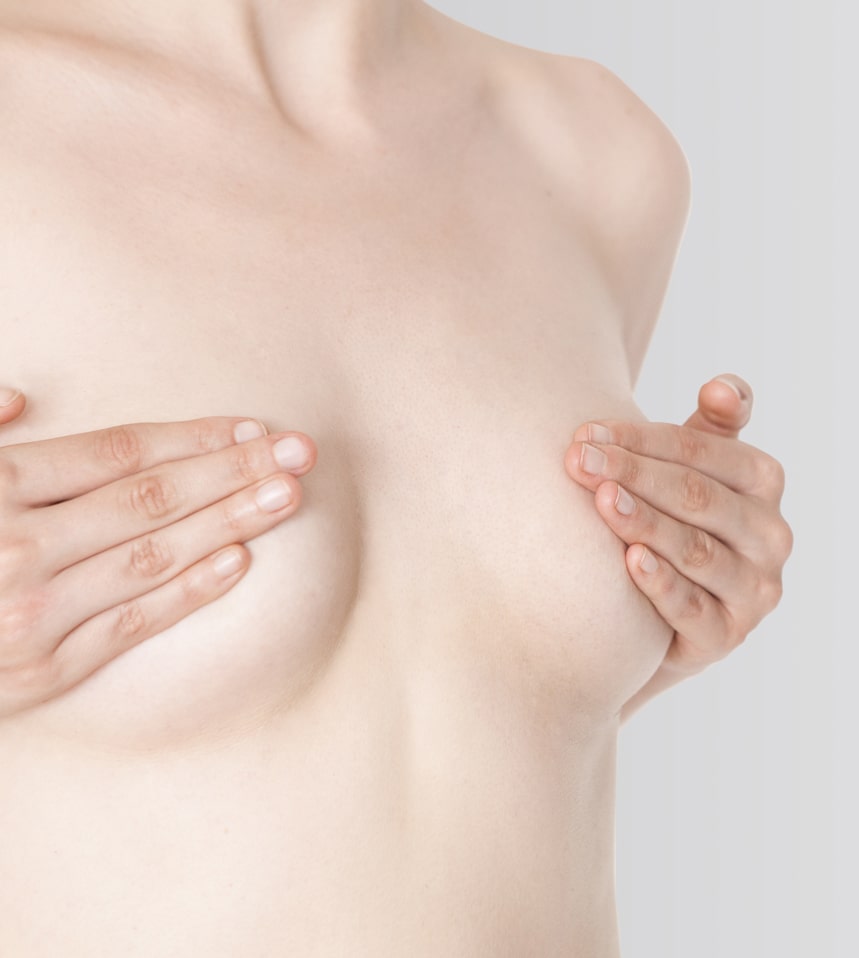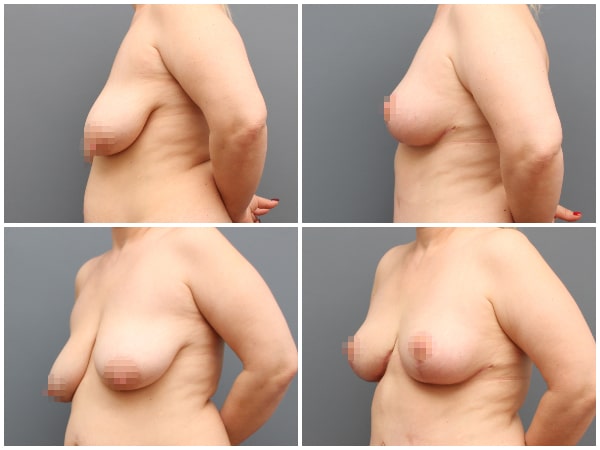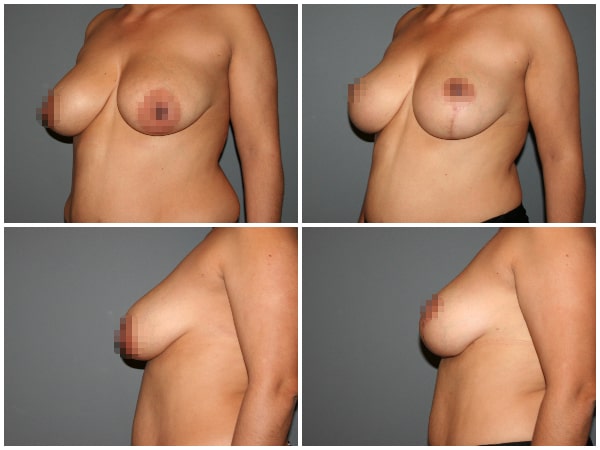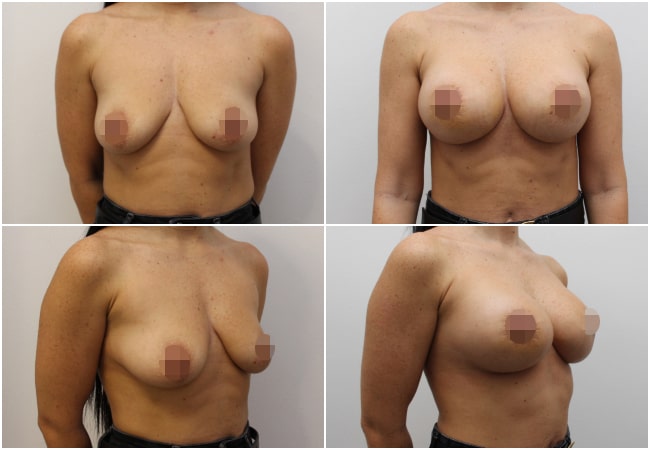Breast Lift
- Home
- -
- Plastic Surgery
- -
- Breast Surgery
- -
- BREAST LIFT

Breast Lift briefly
procedure time
2 hours
Anesthesia
General
hospital stay
1 night
time off
7-10 days
Mastopexy (breast lift) is the surgical procedure that corrects sagging breasts. Gravity and the degeneration of the mammary gland and skin are the main reasons that create this situation. Breast ptosis can also occur after major weight loss, pregnancy and breastfeeding.
The degree of breast ptosis is determined by the position of the nipple in relation to the crease beneath the breasts. The techniques used depend mainly on this degree. The procedure can be combined with either silicone implants or breast volume reduction in order to achieve the best possible cosmetic result.
How is breast lift carried out?
The operation is performed under general anesthesia and takes 1.5-2 hours. The patient usually stays at the clinic overnight. The postoperative pain is mild and standard painkillers are used. Bruising and swelling subside in a few days. A special brassiere is used for 4-6 weeks.
Are there any visible scars after Mastopexy?
The scars after breast lift are located around and perpendicular to the nipple. They improve and fade significantly over the years and become less apparent.
Before & after photos
Breast Lift briefly
Duration of surgery
2 hours
Anesthesia
General
Stay at the clinic
1 night
Return to work
7-10 days



